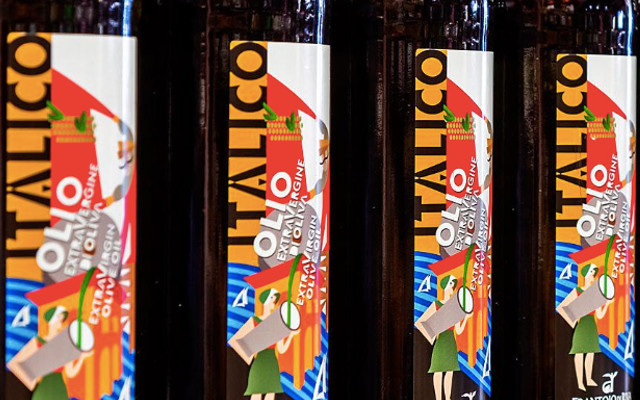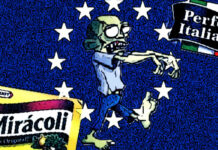Coldiretti, Unaprol and Federolio signed a supply chain agreement on June 28, 2018. Which defines a minimum purchase price for Italian extra virgin olive oil, in exchange for a concession to so-called Italian sounding.
The name ‘Italico’
could in fact be used to designate a blend of oils of any origin, as long as at least half are
Made in Italy
. However, the end does not justify the means. Expectedly, the average consumer, with the comfort of the vocabulary of the Italian language, legitimately identifies the attribute Italico with Italian-ness. And he can thus be misled about the actual origin of raw materials, in defiance of the historic proclamations of transparency called for in words by Coldiretti itself. (1)
Unasco, the national consortium of olive growers and producers, announces battle in an interview of his president Luigi Canino to Natural Theater, (where the faux Italic is called ‘a cancer’).
The National Olive Growers Consortium in turn announces a petition and appeal to the government. ‘
‘The sham supply chain agreement signed between Coldiretti/Unaprol and Federolio is an attack on Italy, on one of the symbolic products of Made in Italy, extra virgin olive oil, on our country’s producers and on consumers’ health
‘, thunders i
president Gennaro Sicolo
.
Olio Italico, the authentic product
Italic Oil
on closer inspection is the name employed by the
the Riva del Garda Agricultural Enterprise, as early as 2011. For the specific purpose of distinguishing
an authentic Italian extra virgin oil, 100% Italian olives, also available in an organic version
(pictured).
The Garda farm did not register such a trademark, knowing that the geographical reference contained therein would easily meet objections from the relevant offices in Italy and Europe. Trademark offices in recent years have indeed expressed particular attention to more generic geographical evocations, the use of which cannot be restricted to the exclusivity of individuals.
Supply chain agreement, voices in favor
TheColdiretti-Unaprol-Federolio agreement
is assessed with optimism, unlike others, by AIPO (Italian Association of Small Olive Growers). His Secretary General Renato Verzari in fact explains to Great Italian Food Trade that the name ‘Italico’ is not defined, it is just a working hypothesis.
The understanding is favorable, Verzari explains, in the part that provides for the support of production up to 10 thousand tons with a safeguard price of the cost of production of 4.10 euros/kg. (2)
The real innovation is the prediction of further:
– 20 cents/kg for industry research, varietal improvement and intensive crops,
– 30 cents/kg premium for ‘clean’ product, i.e., delivered to the packer without pesticide residues. (3)
– 60 cents per kilogram if the product is certified as sustainable. (4)
The benefits of the agreement, according to AIPO, should therefore be considered in a broader time frame, which will be able to allow Italian productions to be planned and improved in the years to come.
Marta Strinati and Dario Dongo
Notes
(1) The matter at hand raises some suspicions about Coldiretti’s acquiescence to the OPT regulation, ‘
Origin Planet Earth
‘ (EU reg. 2018/775). Is there perhaps some conflict of interest to be clarified? See the article https://www.greatitalianfoodtrade.it/consum-attori/origine-ingrediente-primario-reg-ue-2018-775-call-for-action
(2) With reference to Apulia’s production costs, with a view to conferring to groups of Italian household packers
(3) An advantage that enables it to work well in markets, particularly the U.S., which are increasingly demanding in this respect
(4) Supply chain certification, ethics and environmental sustainability









